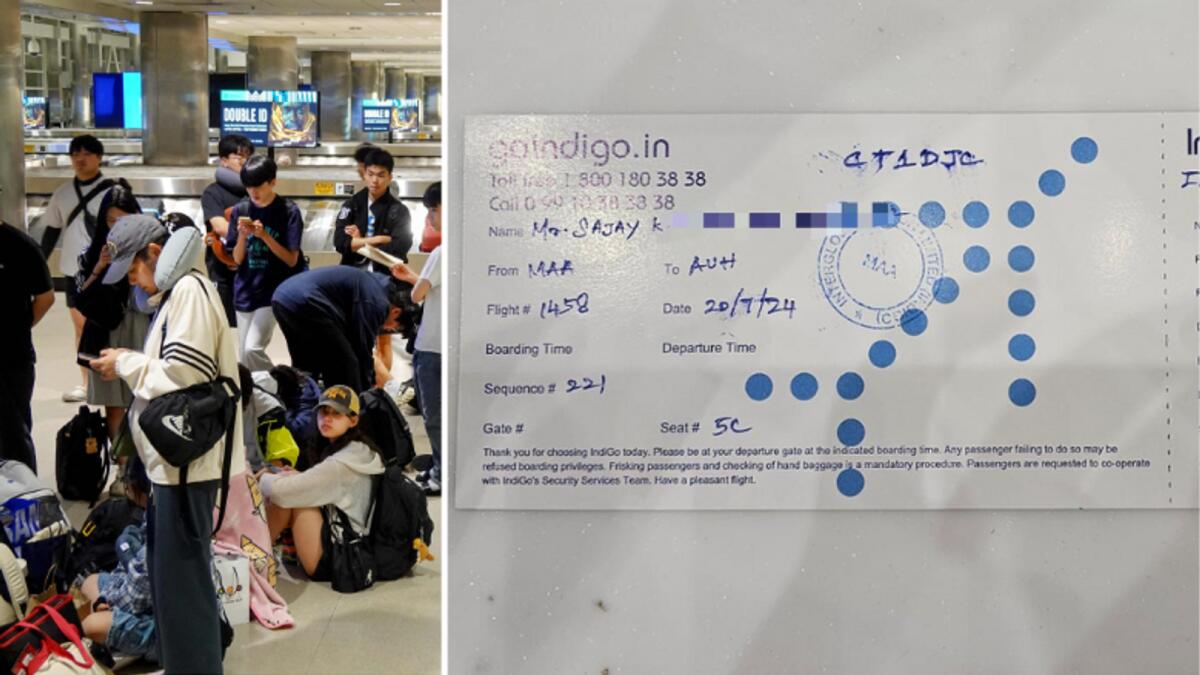Digital systems play a crucial role in the operation of airports worldwide, and any disruption can lead to significant chaos. A recent global cyber outage affected various sectors, including airports, resulting in flight delays and cancellations. Travellers departing and arriving in Dubai shared their experiences, highlighting the vulnerabilities in our reliance on digital systems. While many had smooth departures from Dubai, they encountered significant issues at their arrival or transfer airports.
One such experience was shared by Amir Ismaili, a Canadian resident in Dubai, who narrated his cousin’s ordeal at Paris Airport. Hadi, who was on a business trip in Dubai and returning to Canada with a stopover in Paris, faced major delays and cancellations. The entire journey took over 24 hours instead of the expected 17 hours, reflecting the impact of the cyber outage. Another traveller, Vani Mendon, had a similar experience while flying to Ladakh for a family vacation. Despite smooth operations at Dubai Airport, there were delays and cancellations at Delhi Airport, affecting their connecting flights.
Travellers flying from Indian cities to the UAE also reported delays and handwritten boarding passes due to system failures. UAE resident Sajay Warrier, flying from Chennai to Abu Dhabi on Indigo Airlines, had to wait in long queues at the check-in counter due to the cyber attack. With only a few counters available for multiple flights, the process was inefficient and time-consuming. To assist travellers during this challenging time, additional staff were deployed throughout the airport to provide support and guidance.
The impact of the global cyber outage on airports demonstrates the critical role of digital systems in modern air travel. It also highlights the vulnerabilities and risks associated with our dependence on technology for seamless operations. While some travellers faced major delays and cancellations, others managed to navigate through the disruptions with minimal impact on their journeys. As airports continue to rely on digital infrastructure for efficiency and security, it is essential to ensure robust cybersecurity measures are in place to mitigate the risk of future disruptions.
The experiences shared by travellers departing and arriving in Dubai serve as a wake-up call to the aviation industry, emphasizing the need for contingency plans and backup systems in case of system failures. As technology evolves and becomes more integrated into airport operations, the potential for cyber threats and disruptions also increases. It is crucial for airports and airlines to prioritize cybersecurity and invest in robust solutions to protect their systems and passengers from potential cyber attacks and outages.
Despite the challenges faced by travellers during the recent global cyber outage, it is reassuring to see the resilience and adaptability of the aviation industry in the face of adversity. By sharing their experiences and highlighting the impact of digital disruptions on air travel, travellers play a crucial role in raising awareness and promoting preparedness for future incidents. As the industry continues to evolve and embrace digital transformation, it is essential to remain vigilant and proactive in addressing cybersecurity threats to ensure the safety and efficiency of air travel for all passengers.











